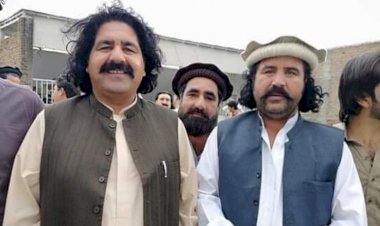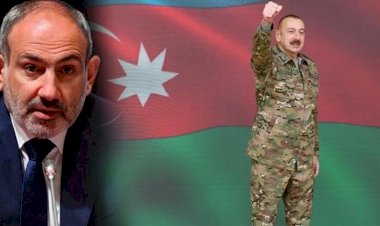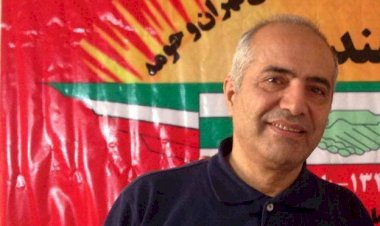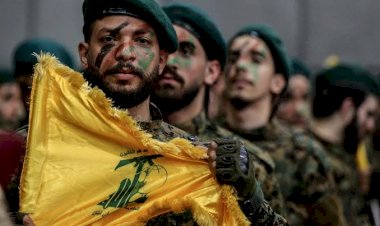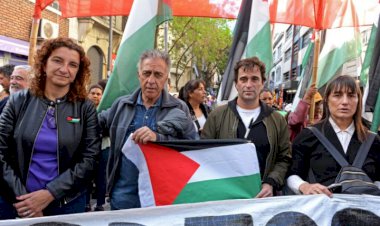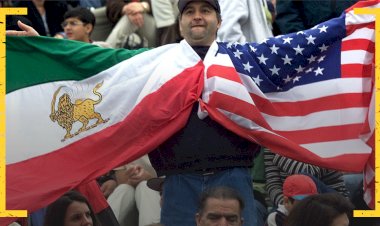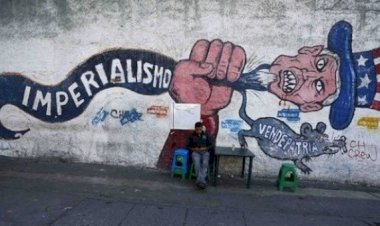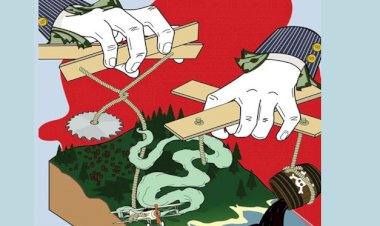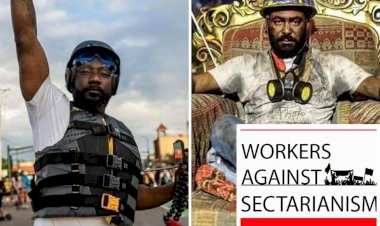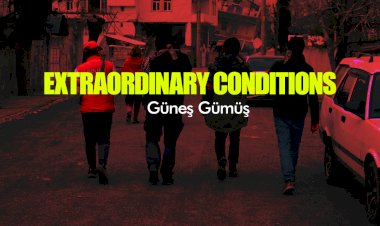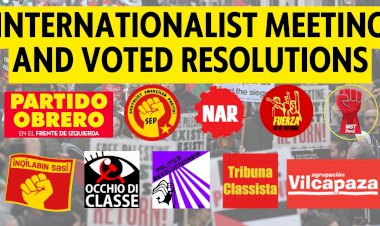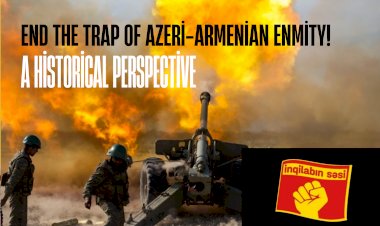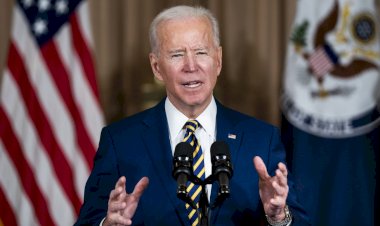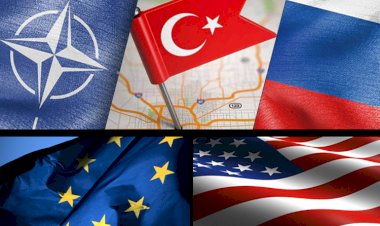Palestinian Protests in the US: A Sign of a New 68? - Tarık HASAN
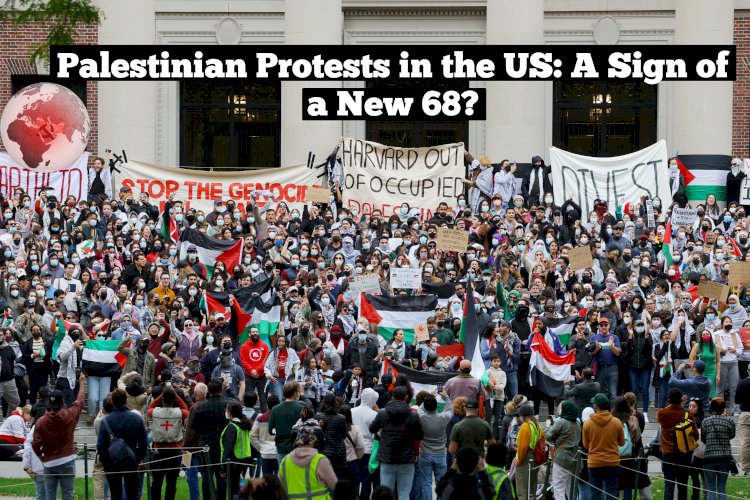
University protests, started in the USA in recent weeks, are expanding through many universities around the world. In addition to the expansion of the protests, the maneuvers of the ruling classes to break the students' protests are also increasing. Since the beginning and development phases of the protests are reminiscent of the 68' movement, many people wonder if these actions will affect global politics. Let's say our last word from the beginning: Even though they emerged with similar demands and were the most widely attended protests of recent times, it is too early to recall the spirit of 68.
How Did All This Start?
On April 17, a march was held at Columbia University with the call of Students for Justice in Palestine, Jewish Voice for Peace and Columbia University Apartheid Divest. The students' demand was that their universities end commercial relations with Israel. Students who continued to protest by placing Palestine Solidarity Tents on grassy areas on the main campus, were confronted the next day by police officers who had no other intention than torture. According to the law in the USA, the police is not allowed to enter the campus without a call from the rectorate. This was the first time police had entered Columbia University since the 1968 student movement. Rector Minouche Shafik, who is also of British origin and a member of the British House of Lords, personally called the New York City Police Department to intervene.
On April 17, rector Shafik was summoned to the US Congress to be questioned about the actions. The justified anger of the students grew even more after Shafik accused the students, who showed solidarity with Palestine, with anti-Semitism. While the police's detention of students and faculty members with torture resulted in the protests escalating, the university had to stop face-to-face education and decided to provide online education.
At the same time, the University of Southern California canceled its main commencement ceremony due to protests on campus. Almost all of the world's prestigious universities have become places where police pressure intensifies. Students, on the other hand, continue their protests with increasing courage and resilience in the face of increasing pressure.
Many students were expelled from the university and educational programs were stopped. In addition, foreign student participation in the protests is also high. Normally, it is a common situation that foreign students do not participate in protests or just observe them from the outside due to issues such as residence permits and being deprived of legal privileges that they have to take into consideration. However, in the protests that started in the past weeks and are still continuing, foreign students are participating in the protests with courage despite these threats.
On Tuesday, April 30, students took over the university's building, Hamilton Hall. Columbia University spokesman Ben Chang said that "the students occupying the building will face expulsion." In the following hours, hundreds of New York police entered Hamilton Hall and detained nearly 50 protesters.
On the other hand, attacks on students do not come only from the police front. Zionist Israeli supporters attacked student tents at the University of California (UCLA) in Los Angeles. There was no police intervention against the Zionists who attacked the students with stones, hammers and other hard objects. The police, who were "absent" during the Zionist attack, came to the campus in the morning and detained students who showed solidarity with Palestine. University Management described the attacks as a "conflict between two opposing groups." We can slightly change the statement made against the so-called intellectuals and the government, who described the events of the 1970s as a "left-right conflict": "There is no conflict between two opposing groups, there is a Zionist attack."
Campus protests have now spread to nearly 140 universities in at least 45 states. As of May 3, the number of people detained is more than 2000.
In his speech at the White House, Joe Biden said, “We are not a nation dominated by authoritarianism. We do not aim to silence people and suppress dissent. But we are not a country where lawlessness reigns.”
Saying that "nobody has the right to create chaos", Biden is in a difficult situation in the face of the upcoming elections. The Uncommitted National Movement, founded by Arab American voters, accused Biden of trying to denigrate anti-war protests and said: “It is clear that Biden is not listening to young people across the country or the more than half a million undecided voters who want him to change his policy. We hope he hears us before it's too late.”
The Palestine issue will continue to be a determining factor in the elections in the United States, which is one of the countries that has supported Israel with approximately 800 million dollars of military aid and billions of dollars of financial aid since the war began.
Actions Go Beyond Borders
The demands and intensity level of the protests also determine its limits. The main demand was to oppose Israel's genocide against the Palestinian people, and the intense pressure applied to the activists for the sake of the interests of the US ruling class enabled these actions to go beyond the borders of the USA. Students at universities in Canada, Egypt, France, Germany, Argentina, Australia, India, Italy, Lebanon, Spain, the United Kingdom, Tunisia, Kuwait, New Zealand and Yemen organized solidarity actions with Palestine on campus. At Sorbonne University and Sciences Po, the universities where radical student protests have historically been most intense, students set up tents on campus and faced police pressure.
The German government, which codes anyone who shows solidarity with the Palestinian people as Anti-Semitic, displayed a similar attitude in university protests. Students who wanted to stage a sit-in protest at Humboldt University, where Marx's statue is located and where the 11th Thesis was written on the faculty wall, were detained under torture.
The most "tragicomic" reaction to student protests and counter-attacks came from Turkey. The METU Rectorate, which did not hesitate to call the police to the campus during campus protests, sent e-mails labelling the students gathered in front of the rectorate as "terrorists", and banned Spring Festival, Graduation and community events, wrote the following in its post on April 26: “For more than 6 months, violence has been carried out against university students who have been peacefully protesting the brutality aimed at destroying innocent people living in Gaza. Protesters at many universities, from Columbia University to Yale, from New York University to Harvard, are demanding that their universities support calls for a ceasefire in Gaza and cut ties with companies linked to Israel. Students are detained during the protests, and universities switch to distance education to stop the protests. We consider this disproportionate reaction against the peaceful reaction of university students as a blow to fundamental human rights and academic freedom, we deeply regret it and strongly condemn it."
Not even the last person who has the right to speak out about academic freedom; Naci İnci, the trustee rector of Boğaziçi University, whose pressures on students, dismissals of faculty members, and reactions to all kinds of collective activities are still fresh in our memories, condemned the US police in his tweet on April 26 and wrote: “They have no agenda other than discrediting their own universities for their own interests. I invite these people to a level of conscience where they will not at least use people who stand against Israeli brutality for their own purposes."
Erdoğan also said in his speech at the Democratic Union Workshop: "Conscientious students and academics at some prestigious brand universities are reacting to the massacre. They are exposed to violence and torture. Rectors and academics are being fired and lynched. No one even raises a voice against these events. They are waiting for things to calm down because Israel's interests draw the boundaries of western democracy.”
Of course, it does not surprise us that the government, which puts on a coffee-cola boycott show while continued to trade with Zionist Israel in raw materials required for the production of basic consumer goods such as iron, steel, jet fuel and other weapons just until yesterday, shows the same hypocrisy in its reactions to the protests.
A similar tragicomic statement was made by the Ministry of Foreign Affairs of Azerbaijan, where even the minimum rights were not provided, against the detention of climate activist Greta Thunberg last month: "We are disturbed by the detention of Greta Thunberg during peaceful demonstrations. We call on the Dutch authorities to respect freedom of expression and release those detained.”
Aside from the fact that such hypocritical statements only cause us to laugh nervously rather than surprise us; we see that bourgeois democracy does not even fulfill its formal duty and has turned into one of the discursive tools used in international diplomatic relations.
So, is there an internal connection between capitalism and democracy?
Answering this question is, of course, well beyond the scope of this article. However, it is necessary to point out a fact that is also demonstrated by the police crackdown on recent protests. There is a historical incompatibility and contradiction between democracy and capitalism. What makes capitalism and democracy opposed is the separation of the political and economic spheres in capitalism. The basic elements of bourgeois formal democracy, such as freedom of expression, the right to choose, and the right to demonstrate, are confined only to the political sphere, and freedoms regarding economic problems, which seem to be a separate field, are excluded from the framework of the freedoms provided.
That's why the working class, the biggest actor in the economic field, needs to come to the stage to show solidarity with Palestine and force the US government to cut aid to Israel. Workers who organized strikes against layoffs and wage cuts in the automobile industry last year showed how they can create pressure whenever they want. Workers need to be active in the political arena in order to solve capitalism's "separation of economy and politics", which is precisely the impasse of democracy, by not being stuck with the problems in the economic arena. As a result of millions of workers going on strike and solidarity with students in 1968, governments in several countries fell and the ruling class prepared its shroud. The capitalist order, which came to its senses with the betrayal of the union bureaucracy, accelerated the counter-attack. As I said at the beginning, it is too early to recall the spirit of 68. It will be vital for the working class to participate in these demonstrations.



